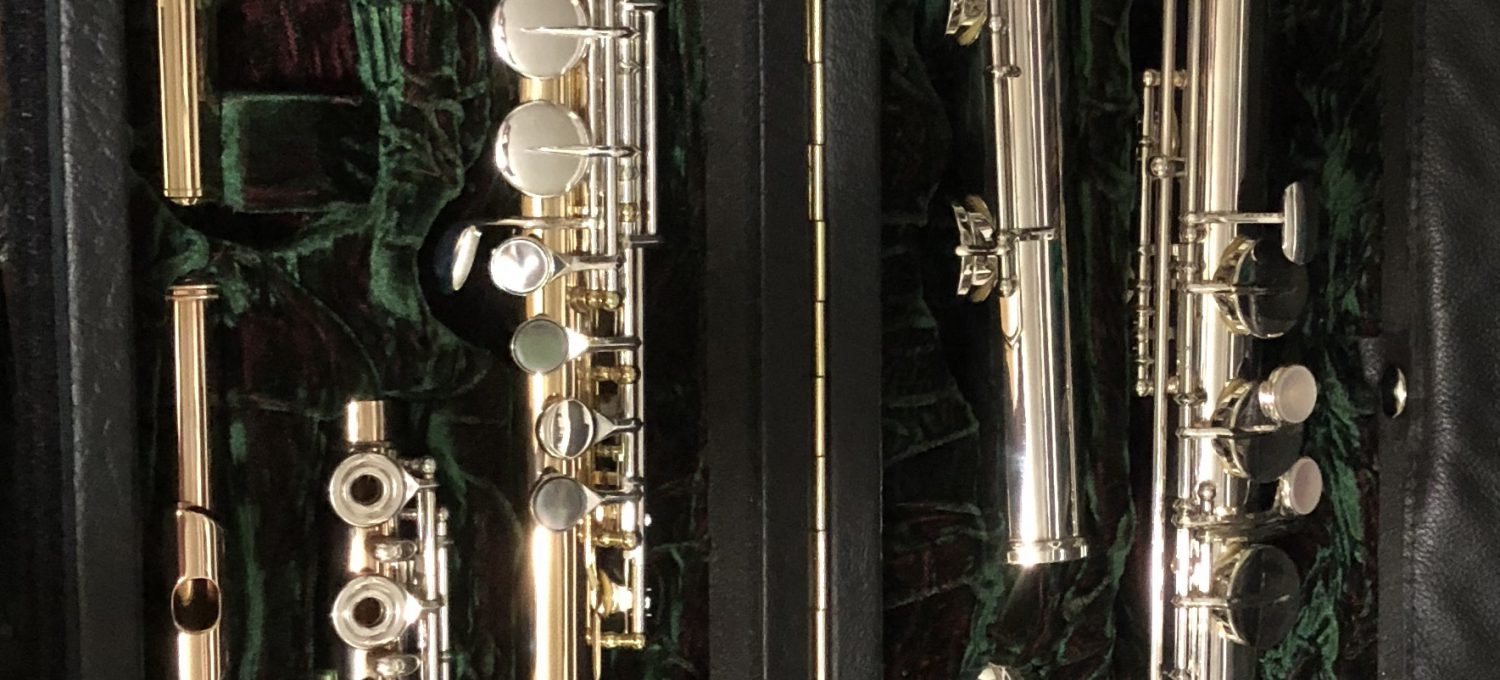Spring is here…or is it?
Just when you thought the weather was going to take a turn for the better, you wake up and there is snow on the ground, again. We “spring forward” and hope for the best even though Monday morning seems to come an hour earlier. For me, this is the season when I start to travel more. Working as a clinician for Trevor James is a wonderful experience. I get to travel and work with students in many different regions of the United States. I also get to see parts of our country that I have never seen before, all while making new friends and playing great music.
Travel means dealing with airports (and the germ-riddled people in them), checked and carry-on luggage, traveling with expensive instruments, time changes and drastic changes in weather. The list goes on and on. It can be a nice adventure and a break from a repetitive daily schedule if you are prepared and adequately informed.
Personal health is important, and there are some routines that I make sure to employ when I am traveling. I try very hard to get enough sleep between travel days. This can help adjustment to time changes and it also helps your body fight off the germs encountered during the trip. I also try desperately to stay hydrated. There is a great deal of coffee when I am traveling, several energy drinks, but always extra water when I get back to the hotel before bed and when I wake up.
Traveling takes a toll and by the time you feel dehydrated, it is too late.
A multivitamin is also important because staying hydrated or having those social drinks with colleagues can flush important minerals out of the body.
Traveling with instruments is also very scary. This column is generally about piccolos but when I am working as a clinician, I often play my C flute as well as my alto and bass. Taking a piccolo or a C flute isn’t usually a big deal but add in the alto and bass cases and the airline employees have a fit over your carry-on baggage. I never check instruments because that just begs for a disaster to happen.
Because I also travel with my laptop so that I can continue managing my online classes, I recently purchased a Wiseman quad case. This case holds my piccolo, C flute, alto, and bass flutes securely and is made to be a travel case. The design meets the carry-on dimensions while holding all of my instruments. I do carry a copy of the FAA regulations regarding smaller musical instruments as carry-on luggage just in case there might be some question. The instrument case is my carry-on item and my laptop bag counts as my personal item.
It is important to check individual airline policies and to make sure you are in an earlier boarding group so that you are sure to get space in the overhead. Also, some economy tickets only allow one personal item and no longer allow an additional carry-on. So, double check your ticket, because that extra $50 might keep you from being put in a situation where you need to check your laptop or your flute. I also make sure when going through security and boarding that I inform security and the crew that I have expensive musical instruments. Only once has my case been checked and because I told them, security let me open the case for them to swab it. Being nice can go a long way. We have all heard some horror stories. I have found with travel cases that the x-ray machines get a clear view whereas when my piccolo and flute cases were stuffed into my laptop bag, they may have not scanned as clearly.
When I am doing these clinics around the US, I often scan my music for the recitals or workshops onto my iPad, which allows me to take so much more music with me than I could if I were carrying paper copies. I might add that I also have multiple etude books and dozens of additional pieces of repertoire on the iPad, just in case. Add in a bluetooth pedal and you can turn pages for multipage pieces. A tablet makes travel lighter, literally, and the iPad provides entertainment in the form Sudoku, playlists, or watching movies. New security regulations do require that anything larger than a cell phone to be removed from the bag, so tablets have to come out now, too. Again, it is important to keep up with the changing security requirements. Keep in mind, they have your safety in mind, so try to be patient as well as prepared. You don’t want to be “that guy” holding everyone else up.
Finally, be prepared that the weather may be very different where you are headed than where you live. I was just in Montana, and it was in the 50’s but very dry (back home they had another snow storm with over a foot of snow). Things can happen to instruments when shifting climates so be gentle with them. Wood, cork and pads may shrink or swell. Do your best to keep your instruments in their cases. Do not expose them more than necessary to the new climate, especially if the length of the trip is a week or less. Clearly, you need to practice, but put them back in their cases when you are done. Also, be prepared to sound “different.” Elevation and climate have an effect on our bodies, especially respiration, and moisture or lack of moisture in the air can make us sound different.
Traveling, making music, and meeting new people is great fun.
Make sure you are prepared appropriately when traveling with instruments. Check out the airline policies and regulations. Slightly cheaper tickets aren’t always best for traveling with instruments. Be polite and friendly. Get extra rest. Enjoy!

